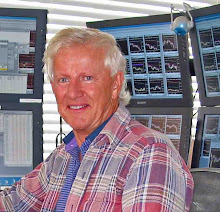High-Speed Traders (HFT – High Frequency Trading) Race to Fend Off Regulators
The Wall Street Journal – December 27, 2012
Writers: Jenny Strasburg at jenny.strasburg@wsj.com and Scott Patterson atscott.patterson@wsj.com
My Introduction:
Most traders wonder, what the hell is High Frequency Trading (Traders – HFTs)?
The answer to the question is both simple to answer and, at the same time, a mystery.
It’s simple to explain: traders, using unique software and extremely fast data feeds, both of which are neither affordable or location practical for the average day trader, make extremely fast trades, split seconds, with huge lot sized, for pennies and more gains.
HFT is a mystery because we have never used their software and don’t really know how HFT influences the markets – can only guess, at this point in its history.
Report snippets:
“High-frequency trading firms are fighting to fend off regulation as scrutiny of their practice of unleashing blizzards of orders coincides with repeated technical glitches in the markets.”
“The studies have value but also shortcomings, says the researcher hired and quoted by Knight, James Angel, a finance professor at Georgetown University.” “Not even the exchanges have all the data,”
“In high-frequency trading, computers place thousands of buy and sell orders and instantly cancel many of them, having placed them just to test demand. Such trading has come to dominate U.S. stock markets, making up more than half of daily volume, and increasingly influences how currencies, commodities and other assets trade.”
“Defenders say high-frequency trading keeps markets lubricated with a constant supply of buy and sell orders that enable all participants to trade more efficiently and get better pricing.”
“Critics, for their part, worry that the traders’ order torrent makes markets more opaque, less stable, and ultimately less fair” (my comment: as prices can move surprising against your trade and you lack the information to know why, possibly causing a big money loss).
“In this atmosphere, fast-trading firms have stepped up their Washington presence. “
Credit: The Wall Street Journal
“Some fund managers handling assets for small investors have pushed back, urging lawmakers and regulators to examine how rapid-fire trading affects customers like theirs.”
“So far, the high-speed firms have avoided onerous regulation.”
My closing comments:
First, for day traders, particularly my clients, there is no way to know what HFTs are up to, as they have unique software that we don’t have access to nor want access to – why? – it’s simply a distraction from our strategy of big money winning and our day trading systems. In other words it’s experienced as choppy price action – more noise.
Second, I think, though I have no proof (theory of experience trading) HFT trading adds liquidity to the markets. You get better fills on both the entries and exits. That’s a good thing, we can all agree. So my feeling is let them do their thing. There is no reason I can think of that would prevent them from day trading, investing, or swing trading – while HFT. These traders (software really) can apply their capital any way they like. The just have another approach to make or lose money in the stock or any other markets.
Thus, we can relax, and just trade as usual, giving less weight to what we see in Level 2 data and more attention to ticker price action – what’s real as opposed to transient buy/sell short offers, with frequent cancellations (to test the markets) trickery. We are used to trickery. We use trickery to make our big money wins (money) so nothing new there, agree?
Read More - Day Trading Stocks

